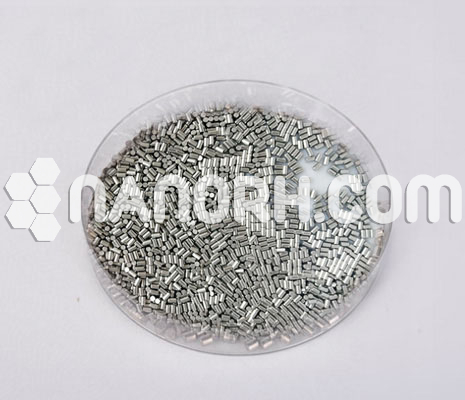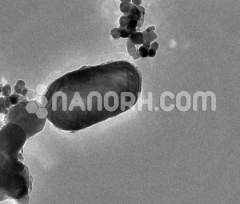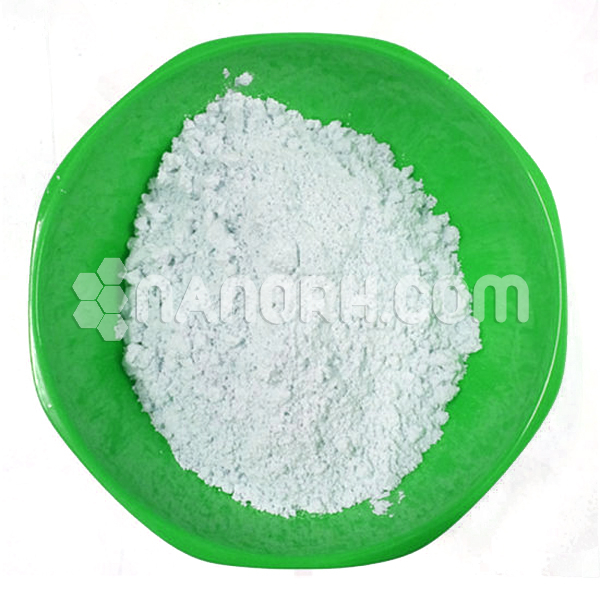| Hafnium Pellets | |
| Product No | NRE-52061 |
| CAS No. | 7440-58-6 |
| Formula | Hf |
| Molecular Weight | 178.49 g/mol |
| Purity | 99.9% |
| Density | 13.31 g/cm3 |
| Melting Point | 2227 °C |
| Boiling Point | 4602 °C |
| Shape | Pellet |
| Electrical Resistivity | NA |
| Electronegativity | NA |
Hafnium Pellets
Hafnium pellets are used in various advanced technological and industrial applications due to their unique properties, such as high melting point, resistance to corrosion, and neutron absorption capability.
Nuclear Industry
Control Rods: Hafnium is widely used in the nuclear industry for control rods in nuclear reactors. Its excellent neutron-absorbing properties make it effective at controlling the rate of nuclear reactions by absorbing neutrons. This helps to regulate the reactor’s power output and maintain safety.
Neutron Absorbers: In addition to control rods, hafnium is used in other neutron-absorbing components within nuclear reactors, such as in reactor shielding and as a material for neutron capture.
Semiconductor Industry
High-k Dielectrics: Hafnium is used in the semiconductor industry as a high-k dielectric material. Hafnium dioxide (HfO₂) is employed as a gate dielectric in metal-oxide-semiconductor field-effect transistors (MOSFETs). This helps to improve the performance of transistors by allowing for better scaling of device dimensions and reducing leakage currents.
Aerospace and Defense
Alloys: Hafnium is used in alloys, such as those with titanium, to improve their strength and resistance to high temperatures. These alloys are employed in aerospace components, including jet engines and turbine blades, where high-temperature stability and strength are crucial.
Rocket Nozzles: Hafnium-containing materials are used in rocket nozzles and other high-performance aerospace applications due to their ability to withstand extreme temperatures and corrosive environments.
Optical Coatings
Thin-Film Coatings: Hafnium is used in the production of thin-film coatings, such as those found in optical devices. Hafnium oxide is employed in coatings for lenses, mirrors, and other optical components to enhance their performance by improving their refractive properties and durability.
Catalysis
Catalyst Support: Hafnium is used as a support material in various catalytic processes. Its high stability and resistance to corrosion make it suitable for use in catalysts that require durability and long-term performance.
Research and Development
Material Science: Hafnium pellets are valuable in research settings for exploring new materials and technologies. Researchers use hafnium to study its properties and develop new applications in fields such as electronics, materials science, and nuclear technology.




